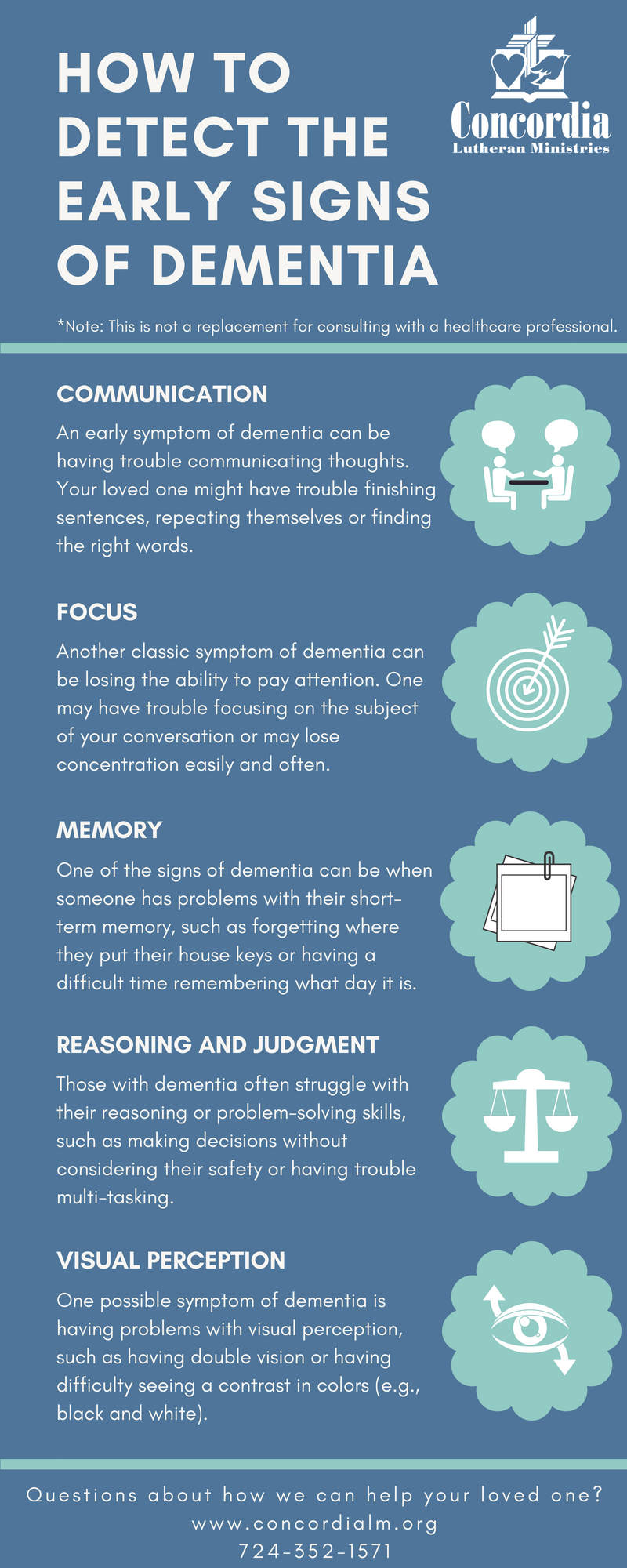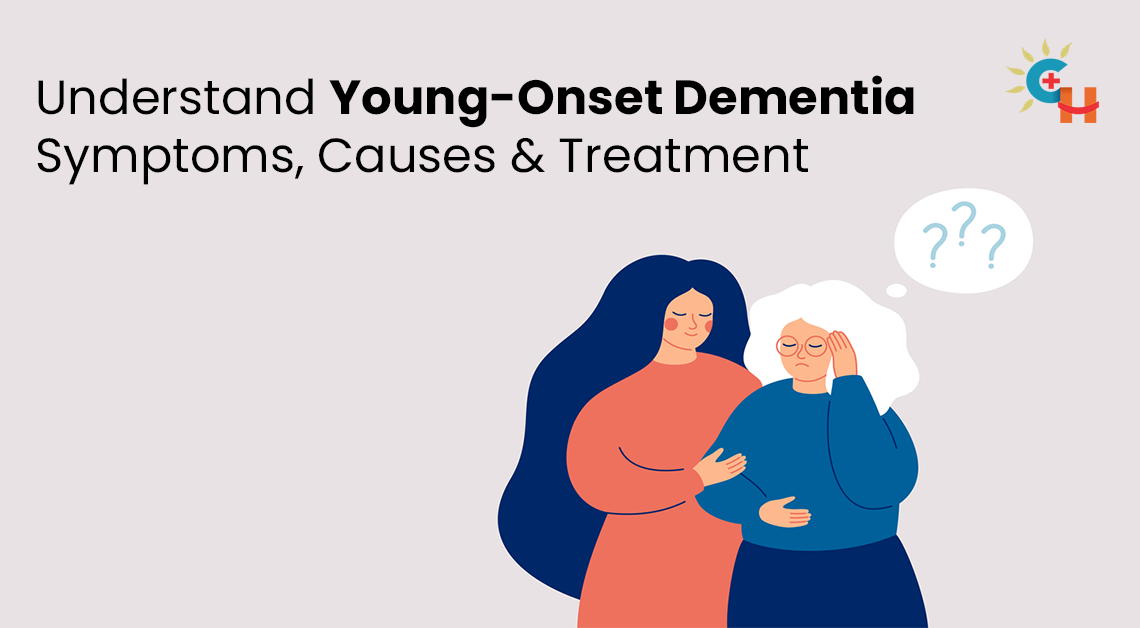Traveling Tips When Supporting Someone With Early Onset Dementia
Traveling Tips When Supporting Someone With Early Onset Dementia
Blog Article
Recognizing the Influence of Dementia on Daily Life and Caregiving
Mental deterioration impacts everyday life in extensive ways, influencing not just those detected but additionally their caretakers. As cognitive decrease progresses, you might observe modifications in interaction and routine that obstacle both events. Comprehending these shifts is vital for keeping self-respect and involvement. Just how do you adapt your caregiving approaches to support somebody traversing this complex trip? The responses could shock you as we explore the nuances of this experience.
The Stages of Dementia and Their Results on Life
As you browse the journey of mental deterioration, recognizing its stages can considerably influence just how you manage life. Dementia commonly progresses with three main stages: early, middle, and late. In the early phase, you might notice periodic memory lapses or problem locating the right words. This can cause frustration, yet identifying these indicators early aids you adjust your routine and look for assistance.
Throughout the middle phase, you'll experience extra visible cognitive decline. Daily jobs might become challenging, and preserving your independence may call for changes. Using reminders and streamlining your atmosphere can help.
In the late phase, individuals usually require substantial assistance with daily tasks. Planning for care becomes necessary, concentrating on comfort and quality of life. By recognizing these phases, you're better geared up to react proactively, guaranteeing you or your loved one can navigate the difficulties with self-respect and elegance.

Modifications in Communication and Social Communication
Just how do modifications in interaction influence your daily interactions as mental deterioration proceeds? As mental deterioration advancements, you might see that straightforward discussions end up being difficult. Words may leave you, or you might battle to find the appropriate expressions. This can result in irritation for both you and your enjoyed ones. Nonverbal cues, like gestures or faces, end up being progressively vital.
You might discover it easier to connect via these ways instead of depending exclusively on spoken language. Paying attention abilities can additionally change; you may discover it more challenging to keep in mind or adhere to conversations what was just stated (Vascular Dementia). This can result in misunderstandings or sensations of isolation
Encouraging persistence and creating a supportive environment can assist. Participating in activities that cultivate connection, like songs or art, can enhance social interactions. Keep in mind, maintaining connections is still feasible; it's almost adjusting to new methods of communicating.
Effect On Daily Routines and Activities
While steering day-to-day routines, you'll likely notice that tasks you when finished effortlessly ended up being much more tough as dementia proceeds. You might discover on your own forgetting actions in acquainted regimens or having a hard time to recall where you put products.
Adapting your setting can help; for circumstances, classifying things or making use of lists can streamline jobs. Involving in recurring, organized tasks can also give convenience and a feeling of success. Keep in mind, it's alright to ask for assistance.
Psychological and Behavioral Challenges
Steering via everyday regimens can produce not simply useful challenges, but additionally psychological and behavior ones. You might see adjustments in mood, such as increased stress and anxiety or stress, which can stem from confusion or problem in completing jobs. As you browse these minutes, it is crucial to identify that your enjoyed one might express their feelings with actions like agitation or withdrawal.
These psychological responses can be uncertain and might arise without warning, leaving you both sensation overwhelmed. You might locate that familiar atmospheres or routines can help in reducing anxiety, yet maintaining persistence comes to be significant. It is crucial to validate their sensations, also if you do not completely comprehend them.
The Duty of Caregivers in Sustaining Individuals With Dementia
As a caretaker, you play an essential function in offering emotional assistance for people with mental deterioration. Developing day-to-day treatment routines can develop a feeling of stability and comfort, helping to reduce their anxiety. By understanding their requirements and utilizing reliable techniques, you can significantly improve their lifestyle.
Emotional Assistance Methods
When caring for a person with dementia, recognizing the psychological landscape is necessary for giving effective assistance. Easy motions, like holding their hand or maintaining eye get in touch with, can create a feeling of security. Inevitably, don't neglect to take care of your very description own psychological requirements; looking for support for on your own can boost your capability to care for them.
Daily Treatment Routines
Developing everyday care routines is essential for offering security and comfort to people with mental deterioration, as these routines can assist minimize confusion and stress and anxiety. You can start by describing a constant routine for dishes, activities, and remainder. This predictability assists your loved one really feel more secure and involved.
Incorporate acquainted tasks, like folding washing or watering plants, which can stimulate favorable memories and promote a feeling of accomplishment. Usage aesthetic signs, such as calendars or checklists, to lead them with the day.
Be resource versatile, though; adapt routines as needed based on their mood or energy levels. Fall Risk. Bear in mind, your patience and understanding are vital in navigating their changing demands, guaranteeing they feel supported and valued throughout their everyday life
Developing a Safe and Comfy Living Setting
Producing a secure and comfy living atmosphere is crucial for individuals with dementia. You'll wish to make home security modifications that decrease dangers and guarantee experience to offer a sense of comfort. By concentrating on these elements, you can assist produce a space that supports both security and health.
Home Safety Adjustments
As you navigate the difficulties of dementia, making home security adjustments can significantly improve comfort and safety. Label important locations, such as the washroom and cooking area, with clear signs to aid with orientation. These adjustments not just advertise safety and security however also encourage freedom, enabling your loved one to feel even more at ease in their atmosphere.
Comfort and Familiarity
After guaranteeing a secure environment with required adjustments, cultivating convenience and knowledge is necessary for individuals with mental deterioration. Beginning by individualizing their area. Use acquainted colors, decors, and photographs that stimulate satisfied memories. A favorite blanket or chair can provide a complacency. Maintain a consistent regular to aid them really feel grounded and reduce anxiety. Basic, acquainted meals can likewise produce a comforting environment. Keep pathways clear and clutter-free to prevent confusion. Incorporate soft illumination, as bright lights can be disorienting. Take into consideration including comforting fragrances, like lavender, to promote relaxation. Participating in acquainted activities, such as listening to songs or gardening, More hints can enhance their sense of belonging, making their living setting a true shelter.
Approaches for Efficient Caregiving and Assistance
While steering the difficulties of dementia care can feel overwhelming, implementing effective techniques can considerably boost both the caregiver's and the client's everyday experience. Begin by developing a regimen; predictability helps in reducing anxiousness for both you and your enjoyed one. Usage clear, easy communication-- direct questions and short sentences can stop confusion.

Do not neglect to look after yourself; schedule breaks and attach with support teams. Sharing experiences with others in similar scenarios can provide important insights and psychological alleviation.
Finally, remain patient and adaptable. Dementia can bring unforeseeable modifications, so adapting your strategy is necessary. By utilizing these strategies, you can promote a more positive atmosphere that profits both you and your liked one.
Often Asked Inquiries

What Are the Various Kinds Of Mental Deterioration?
You'll discover a number of kinds of mental deterioration, consisting of Alzheimer's, vascular mental deterioration, Lewy body dementia, and frontotemporal dementia. Each kind influences memory and cognitive function differently, so recognizing the differences is essential for correct diagnosis and treatment.
How Can I Aid A Person With Early-Stage Mental Deterioration?
You can aid somebody with early-stage dementia by being individual, supplying support, and motivating them to involve in tasks they delight in. Maintaining regimens consistent and maintaining open communication can likewise make a significant distinction in their every day life.
Exist Financial Resources Available for Mental Deterioration Treatment?
Yes, there are funds available for mental deterioration treatment. You can check out entitlement program programs, not-for-profit companies, and insurance coverage options. It's likewise smart to seek advice from neighborhood companies for specific sources tailored to your situation.
What Legal Considerations Should Caregivers Be Mindful Of?
As a caretaker, you need to take into consideration power of attorney, healthcare proxies, and guardianship legislations. It's vital to comprehend the lawful rights and obligations you hold, ensuring your enjoyed one obtains appropriate treatment and defense.
Just How Can I Deal With Caretaker Stress And Anxiety?
You can manage caregiver stress and anxiety by prioritizing self-care, looking for assistance from groups or buddies, setting realistic assumptions, taking breaks, and exercising leisure techniques. Remember, your well-being matters just as much as the person you're caring for.
Understanding the Influence of Dementia on Daily Life and Caregiving.
As you browse the journey of mental deterioration, understanding its phases can substantially influence exactly how you manage everyday life.While maneuvering day-to-day routines, you'll likely observe that tasks you when completed easily become a lot more challenging as dementia proceeds.Establishing everyday care routines is necessary for offering security and convenience to people with mental deterioration, as these regimens can help reduce complication and anxiety.While steering the difficulties of dementia care can feel frustrating, executing reliable methods can significantly boost both the caretaker's and the individual's everyday experience.
Report this page